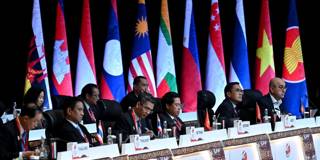
How Asia Keeps the Peace
Since the end of the Cold War, Europe has constantly had to manage violent conflicts on its doorstep, whereas most of Asia has been free of major wars. The reason is relatively simple: Asia has benefited from a culture of pragmatism that treats political division as an impetus for closer dialogue.
SINGAPORE – Here is a new truism for this age of global tension: wars are the result of geopolitical incompetence, whereas peace reflects strategic skill.